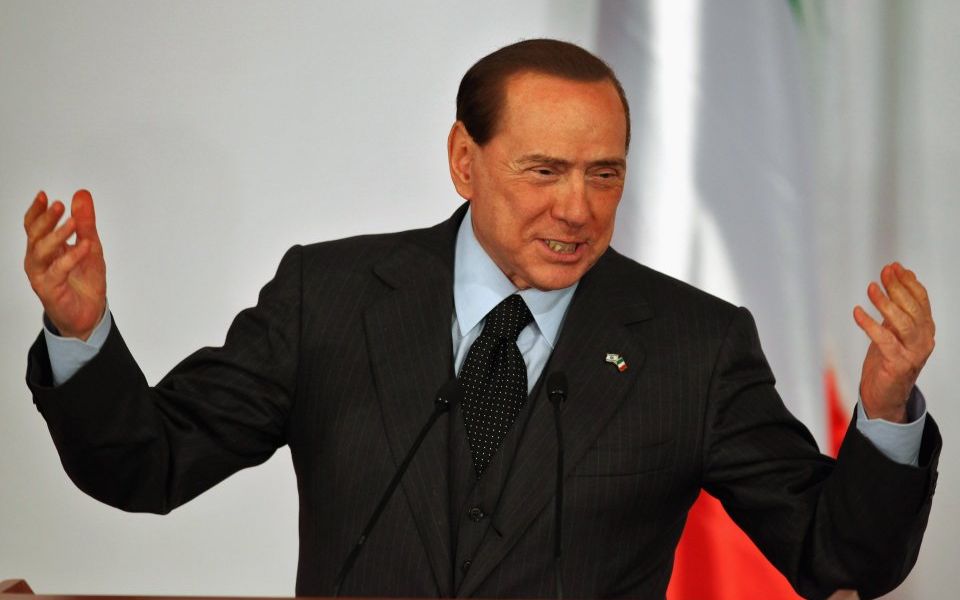
Berlusconi’s ghost haunts Italy’s general election – and reveals the polarisation of its politics

Liberal commentators regularly liken President Trump to the former Italian Prime Minister Silvio Berlusconi.
The huge personal fortune, the unabashed anti-immigration, tax-cutting populism, even the perma-tanned complexion – the comparisons are irresistible.
Yet having previously served three terms as Prime Minister, Mr Berlusconi is no insurgent outsider in Italian politics.
With barely two weeks to go until Italy’s general election, his Forza Italia party – in coalition with two far right parties – could once again win the most seats in the Rome parliament.
There’s just one snag. Mr Berlusconi cannot become Prime Minister – or even run for a seat in parliament – as he remains barred from public office after a tax fraud conviction in 2013.
Such minor inconveniences haven’t stopped the polarising 81-year-old playing a starring role in the election campaign. With typical bravado, Mr Berlusconi claims to be the most popular candidate for the job of Prime Minister – even though the incumbent Paolo Gentiloni is the most popular political party leader with a 47 per cent approval rating.
But Mr Gentiloni’s Democratic Party is struggling to appeal to voters. Despite Italy’s strong economic growth, unemployment remains high – particularly among the young – and the Democrats are widely criticised for being soft on immigration.
Mr Berlusconi has promised to deport 600,000 immigrants if his coalition wins power. He has also criticised the European Union (EU), promised lower taxes and higher pensions.
Reactionary and right wing though his agenda is, Mr Berlusconi is still seen as part of the political establishment, and he is campaigning on a platform to keep the maverick populist 5-Star Movement out of power. Which says all you need to know about the state of Italian politics.
Meanwhile in Germany an opinion poll at the weekend showed the far right Alternative for Deutschland (AfD) overtaking the Social Democratic Party (SDP) with 16 per cent of the vote compared with the SDP’s 15.5 per cent.
For investors in the Eurozone’s largest economy, this is troubling. The AfD is rabidly critical of the EU, dislikes immigration and is gaining ground.
European crisis?
Italian governments have a reputation for fragility and brevity. But it would be wrong to dismiss the elections on 4th March as an Italian sideshow – the political makeup of Europe could be about to change dramatically.
Angela Merkel looks far from secure as German Chancellor. Despite having agreed a coalition deal with the SDP, the arrangement must be ratified by SDP members.
The vote, also scheduled for 4th March, is far from a foregone conclusion. Should the SDP membership reject it, Germany will be plunged into a political crisis the like of which hasn’t been seen in several generations.
Investors are understandably worried that the strong economic growth being enjoyed by both Germany and Italy could be blown of course by such political volatility.
European voters’ ability to spring surprises on the markets should not be underestimated, and the next few weeks are likely to see a lot of caution and defensive positioning among investors.
To find out how INFINOX Capital can help you reach your financial goals, visit www.infinox.com.